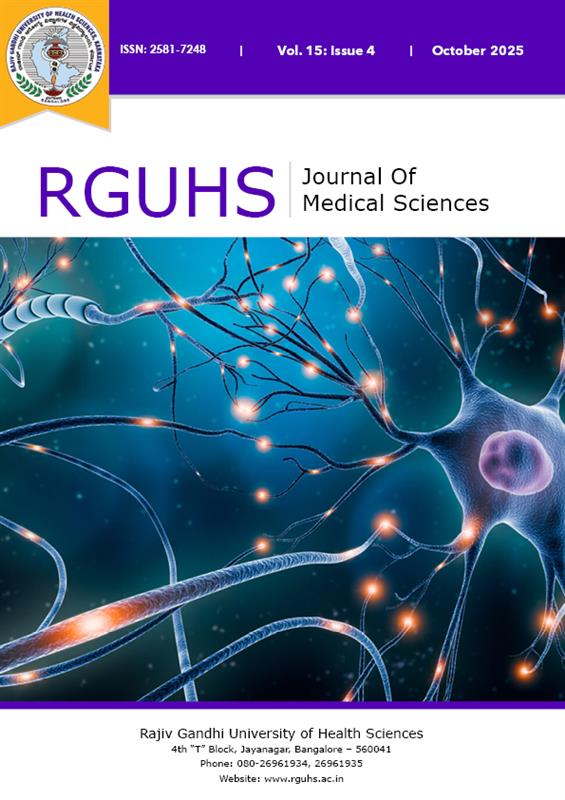
RGUHS Nat. J. Pub. Heal. Sci Vol: 15 Issue: 4 eISSN: pISSN
Dear Authors,
We invite you to watch this comprehensive video guide on the process of submitting your article online. This video will provide you with step-by-step instructions to ensure a smooth and successful submission.
Thank you for your attention and cooperation.
Anup Desai1 , Siddanagouda B. Patil2 , Vinay Kundargi2 , Basavesh Patil3 , Nikhil Patil3 and Kshitiz Ranka3
1 Assistant Professor, Department of Urology, Khaja Banda Nawaz Institute of Medical Sciences, Kalaburagi – 585103, India; anupsd84@gmail.cpm
2 Professor, Department of Urology, Shri B. M. Patil Medical College Hospital and Research Centre, Vijayapur, Karnataka, India
3 Assistant Professor, Department of Urology, Shri B. M. Patil Medical College Hospital and Research Centre, Vijayapur, Karnataka, India
Author for Correspondence :
Anup Desai
Assistant Professor, Department of Urology, Khaja Banda Nawaz Institute of Medical Sciences, Kalaburagi – 585103, India; anupsd84@gmail.cpm

Abstract
Prostatectomy and Transurethral resection of prostate (TURP) have been the surgical options for men with obstructive symptoms due to benign prostatic hyperplasia. Various clinical manifestations, produced due to the absorption of large volumes of irrigating fluid during TURP, are referred to as TURP syndrome. In this study, we have analyzed the changes in serum electrolytes while using irrigating fluids such as 1.5% glycine and Normal saline while performing TURP using Monopolar and Bipolar procedures respectively. A prospective, randomized study was conducted on 88 male patients belonging to the age group of 50 to 86 years over a period of 19 months. 1.5% glycine was used in 46 cases and Normal saline in 42 cases for irrigation. The weight of the prostate gland ranged from 25 gms to 90 gms. The duration of the TURP surgery ranged from 10 min to 90 min. The volume of 1.5% glycine used, ranged from 5l (litres) to 21 l and the volume of normal saline ranged from 5l to 36l. The changes in serum electrolytes that occurred during the procedure were correlated with duration of the procedure, volume of 1.5% glycine and Normal saline used and weight of prostate gland resected. The electrolyte changes during Monopolar and Bipolar TURP were same. Use of Normal Saline did not have any advantages over glycine in patients undergoing TURP.
Keywords
Downloads
-
1FullTextPDF
Article
None
Supporting File
References
None